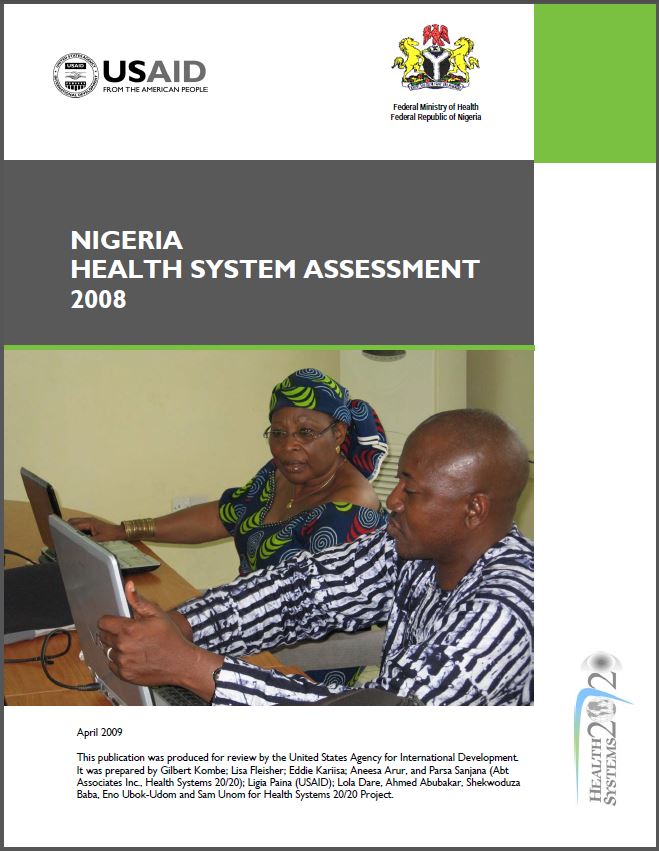Nigeria Health System Assessment 2008
Categories: Health Systems Assessments, Publications
Resource Type: Report
Authors: Gilbert Kombe, Lisa Fleisher, Eddie Kariisa, Aneesa Arur, Parsa Sanjana, Ligia Paina (USAID), Lola Dare, Ahmed Abubakar, Shekwoduza Baba, Eno Ubok-Udom, and Sam Unom
Published: 6/1/2009
Resource Description:
 The Nigerian health sector is broad and is comprised of public, private for-profit, nongovernmental organizations (NGOs), community-based organizations (CBOs), faith-based organizations (FBOs), and traditional health care providers. The composition of health providers is also very heterogeneous, and includes unregistered and registered providers ranging from traditional birth attendants and individual medicine sellers to modern hospitals. Thirty-eight percent of all registered facilities in the FMOH health facilities database are privately owned, of which about 75% are primary care and 25% are secondary care facilities (World Bank, 2005). Private facilities account for one-third of primary care facilities and could be a potentially important partner in expanding coverage of key health services.
The Nigerian health sector is broad and is comprised of public, private for-profit, nongovernmental organizations (NGOs), community-based organizations (CBOs), faith-based organizations (FBOs), and traditional health care providers. The composition of health providers is also very heterogeneous, and includes unregistered and registered providers ranging from traditional birth attendants and individual medicine sellers to modern hospitals. Thirty-eight percent of all registered facilities in the FMOH health facilities database are privately owned, of which about 75% are primary care and 25% are secondary care facilities (World Bank, 2005). Private facilities account for one-third of primary care facilities and could be a potentially important partner in expanding coverage of key health services.
The methodological approach used in assessing the national health system in Nigeria is based on the Health Systems Assessment Approach that was developed by Abt Associates Health Systems 20/20 project in collaboration with Rational Pharmaceutical Management under the Management Sciences for Health and the Quality Assurance Project. This assessment is the most recent comprehensive review of the entire health system drawing on primary data collection as well as on the wealth of existing studies and knowledge about the trends and challenges in Nigeria. The approach assesses the six major components of a health system which include Human resources for Health (HRH), Health Financing, Health Services Delivery, Health Information Systems, Governance, and Pharmaceutical Management.
Download Now



